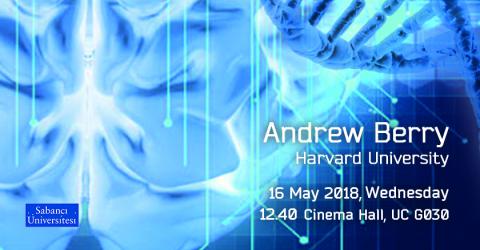FUTURE Seminar by Andrew Berry

"Genomics and Your Brain: Mutation and Aging in Nerve Cells"
Andrew Berry
The human organism is in a constant state of chemical flux: some materials are being jettisoned, some recycled, and some newly acquired through our food and our breathing. In fact, we know that approximately 98% of a body's atoms are replaced every year. Critically, rates of replacement vary between tissue types. Skin cells, for example, turnover very fast, while nerve cells, by contrast, do so only slowly. How can we measure these rates of turnover? The pulse of the 14-C isotope of Carbon generated by atmospheric nuclear bomb testing in the middle years of the twentieth century provides an unexpectedly useful chemical marker with which we can assess the age of the DNA in a cell's nucleus. Strikingly, we find that some brain cells, once laid down very early in life, never undergo cell division. They remain unchanged throughout life. But what about unpredictable, unplanned change, such as mutation? New techniques that permit the application of full genome sequencing to the genomes of single cells allow us to address this question directly by comparing the genomes of nerve cells in people of different ages. The result is striking: as we age, so the genomes of these long-lived cells accumulate mutations. The suggestion, then, is that the decline in mental performance that is a feature of aging may be driven by the accumulation of mutations in our brain cells.


